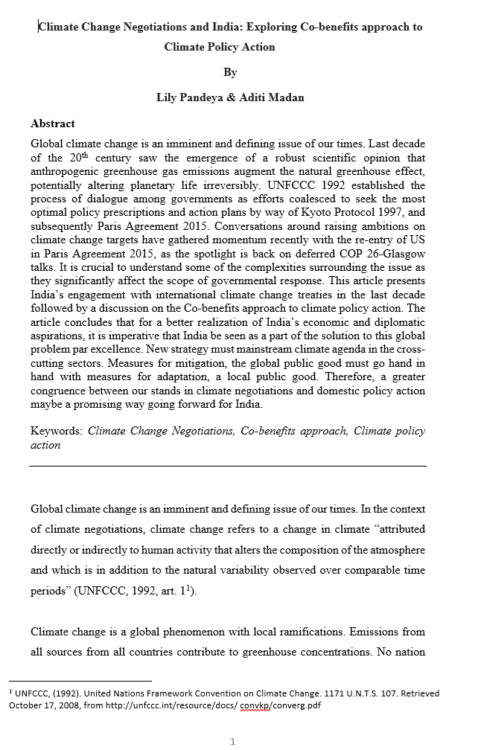Abstract
Global climate change is an imminent and defining issue of our times. Last decade of the 20th century saw the emergence of a robust scientific opinion that anthropogenic greenhouse gas emissions augment the natural greenhouse effect, potentially altering planetary life irreversibly. UNFCCC 1992 established the process of dialogue among governments as efforts coalesced to seek the most optimal policy prescriptions and action plans by way of Kyoto Protocol 1997, and subsequently Paris Agreement 2015. Conversations around raising ambitions on climate change targets have gathered momentum recently with the re-entry of US in Paris Agreement 2015, as the spotlight is back on deferred COP 26-Glasgow talks. It is crucial to understand some of the complexities surrounding the issue as they significantly affect the scope of governmental response. This article presents India’s engagement with international climate change treaties in the last decade followed by a discussion on the Co-benefits approach to climate policy action. The article concludes that for a better realization of India’s economic and diplomatic aspirations, it is imperative that India be seen as a part of the solution to this global problem par excellence. New strategy must mainstream climate agenda in the cross-cutting sectors. Measures for mitigation, the global public good must go hand in hand with measures for adaptation, a local public good. Therefore, a greater congruence between our stands in climate negotiations and domestic policy action maybe a promising way going forward for India.
Disclaimer
The views represented are those of the author(s) and do not necessarily reflect the views or policies of CILT.

